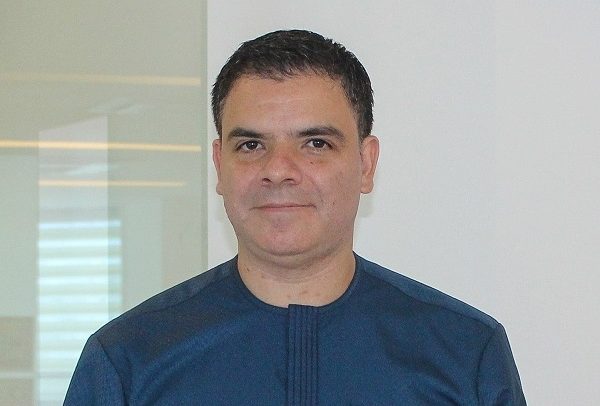
By Prof. Raphael Nyarkotey OBU
Naturopathy, the science of natural medicine, has long been a source of both healing and scepticism. While its history stretches back centuries, it has often faced scrutiny, especially from medical professionals and the public.
Critics have questioned the qualifications of naturopaths and cast doubt on their credibility. Yet, few could have predicted that one individual would rise to bridge this divide, elevate the profession and reshape its narrative in Africa and beyond.
In 2018, a colleague advised me to combine law with naturopathy to address the systemic gaps in the industry. Recognising the value of this suggestion, I embarked on the journey, beginning with a Bachelor of Laws (LLB) that I completed in May 2022. Later that year, I applied to the Gambia Law School, Banjul when admissions opened in July.
On October 3, 2022, I received my admission letter to pursue the Barrister-at-Law and Solicitors course at this prestigious institution, highly regarded across Ghana and West Africa. However, the challenges of Ghana’s economic crisis at the time nearly derailed my plans. The exchange rate hovered above GH¢12 to one dollar, and the bar fees alone amounted to US$8,000.
Adding accommodation and living expenses, the cost of completing the programme was estimated between US$20,000 and US$30,000. Facing these figures, I almost declined the opportunity.
In my case, the journey to becoming a barrister was far from smooth. I had to resit Legislative Drafting three times before finally passing the Bar. This additional challenge significantly increased my expenses, pushing the total cost of my legal education in The Gambia to approximately US$30,000.
Despite the financial and emotional toll, I remained determined to see the process through, knowing that the ultimate goal was not just personal achievement but also to contribute meaningfully to the fields of law and traditional medicine in Africa.
I drew strength from the words of Ghanaian highlife legend Amakye Dede: “There are many towns; sometimes a man must relocate to start afresh when he feels unappreciated or let down”.
This sentiment resonated deeply, reinforced by Kojo Antwi’s song Afrafanto (butterfly), which speaks of moving forward despite past disappointments. With renewed resolve, I decided to embark on this transformative journey.
The Gambia, spanning just 50 kilometres at its widest point and covering 11,295 square kilometres, is the smallest country on mainland Africa. Despite its size, The Gambia’s rich history of promoting traditional medicine drew my attention.
Encouraged by Dr. Kofi Busia, who provided insights into the country’s natural medicine landscape, I saw an opportunity for both personal growth and professional development.
On November 12th, 2022, I boarded an ASKY Airlines flight from Accra to Banjul. The four-hour trip marked the beginning of a new chapter. Upon arrival, I was warmly welcomed by Tee and Chris, my new apartment mates. Leaving my family was emotional, but I embraced the change as necessary for progress. As Ghanaian rapper Amerado aptly says: “Life is a wild carnival”.
I approached life in The Gambia with a mindset shaped by the philosophy of the ‘boiled frog’. This metaphor teaches the importance of recognising gradual changes and adapting before they become overwhelming—a lesson that guided me as I navigated this new environment.
The Gambia, known as the Smiling Coast of Africa, lives up to its name. The warmth and friendliness of the Gambian people were evident throughout my time there. I was especially touched by how my Gambian colleagues supported a Ghanaian student who fell ill and by the unadulterated love shown by traditional healers, who celebrated my success during the Call to the Bar ceremony.
The nickname Smiling Coast also reflects the country’s unique geography. Cutting through Senegal, The Gambia’s position on the map resembles a smile. Tourism plays a significant role in its economy, with stunning natural landscapes, ethnic diversity, religious tolerance and flavourful cuisine attracting visitors worldwide. Its cultural and historical treasures, including UNESCO World Heritage sites, further enrich its appeal.
This identity was formalised in the late 1970s, when The Gambia Tourism Board collaborated with the Bradford Group to market the country as a tourist destination. Around the same time, Alex Haley’s book ‘Roots’ brought international attention to The Gambia, tracing the story of Kunta Kinte – an 18th-century Gambian sold into slavery.
In 2023, The Gambia ranked fifth among Africa’s happiest countries in the World Happiness Report, a testament to the resilience and generosity of its people. Despite global challenges, Gambians continue to embody a spirit of optimism and community.
In many ways, The Gambia welcomed me not just as a student, but as part of its broader community. This country became the stage for a milestone achievement, becoming the first naturopath in Africa to qualify as a lawyer. During the Call to the Bar ceremony, I was presented with Artemisia annua by the traditional healers, a symbolic reminder of my mission to protect and advocate for traditional medicine.
Today, my primary focus is on developing legislative and regulatory frameworks for traditional and complementary medicine across Africa. I am also committed to supporting practitioners in upholding professional standards, ensuring quality care and minimising the risk of medical negligence. For the love and lessons I received in The Gambia, I remain eternally grateful to the Smiling Coast of Africa.
>>>The author is a Professor of Naturopathic Healthcare and a Barrister and Solicitor of the Supreme Court of The Gambia, having been called to the Gambia Bar in November 2024. I earned my Barrister-at-Law (BL) qualification from the Gambia Law School in Banjul, The Gambia. For inquiries, please email me at [email protected]
The post Bridging naturopathy and law – a journey in The Gambia appeared first on The Business & Financial Times.
Read Full Story







Facebook
Twitter
Pinterest
Instagram
Google+
YouTube
LinkedIn
RSS